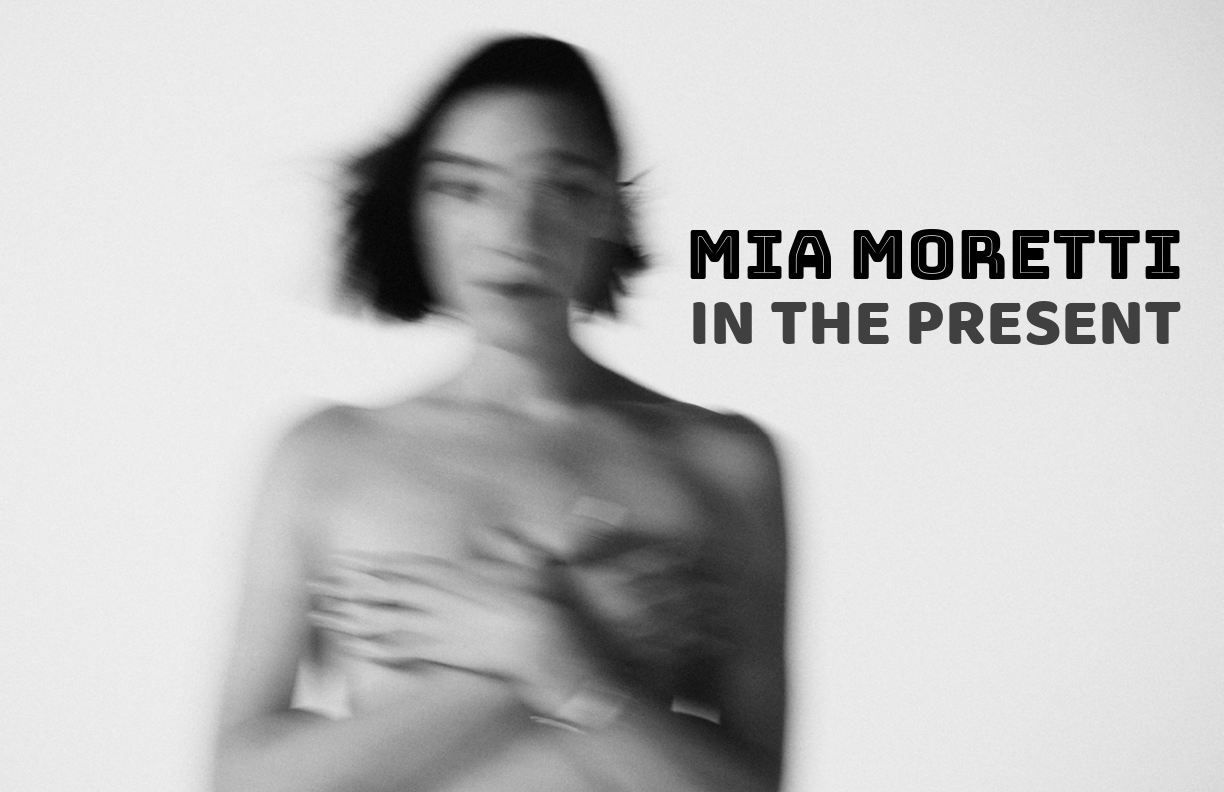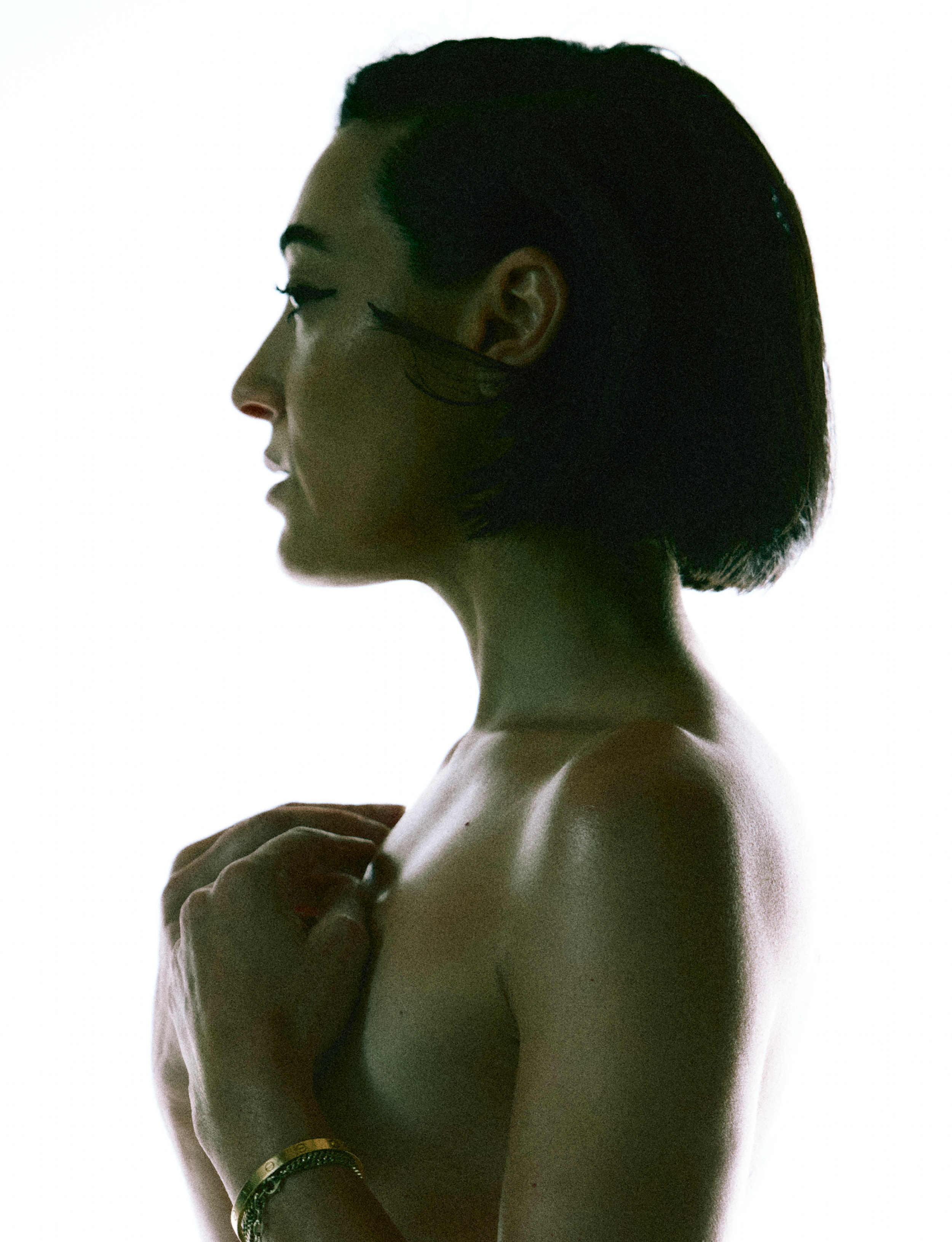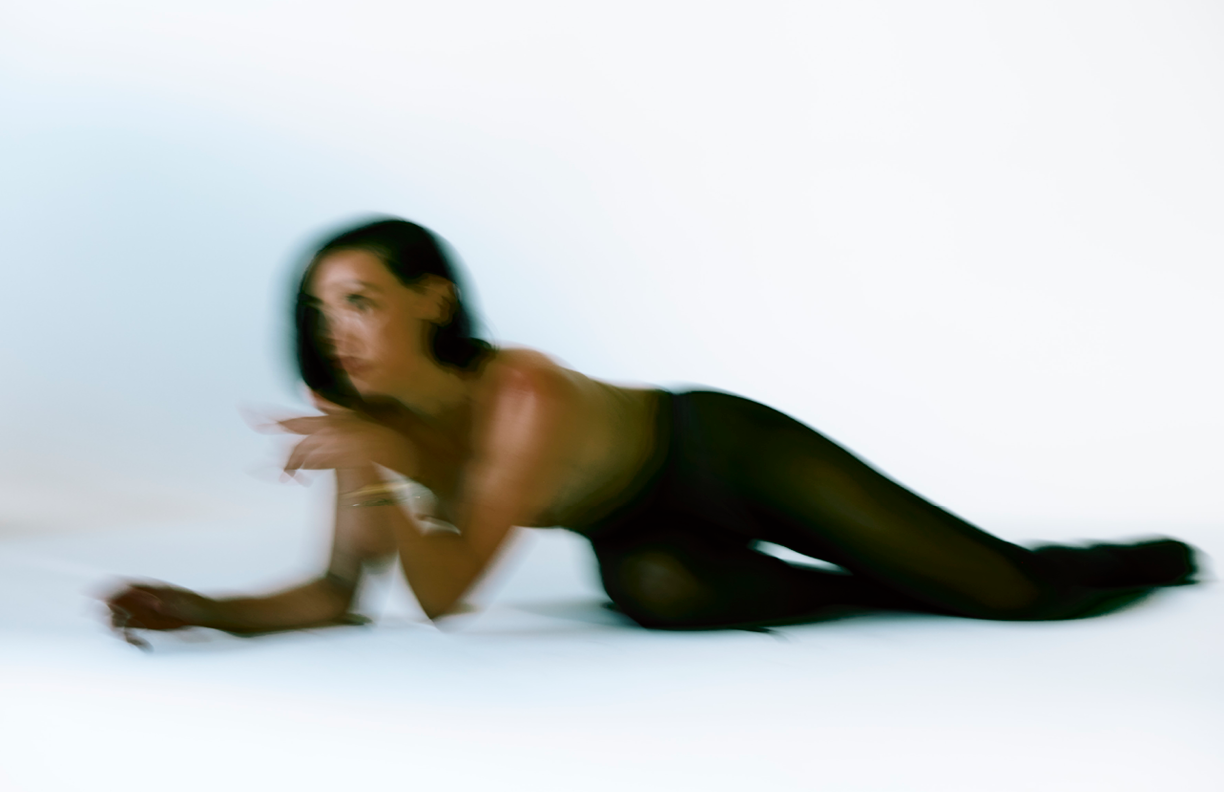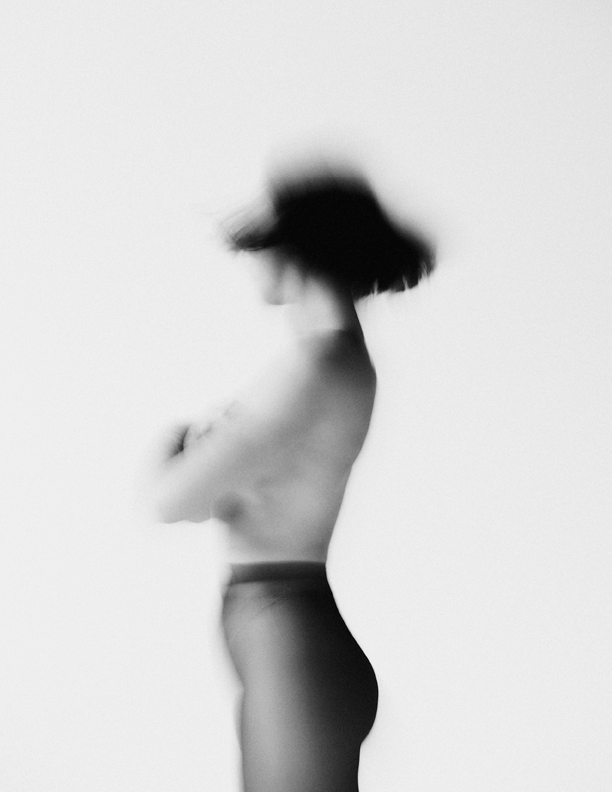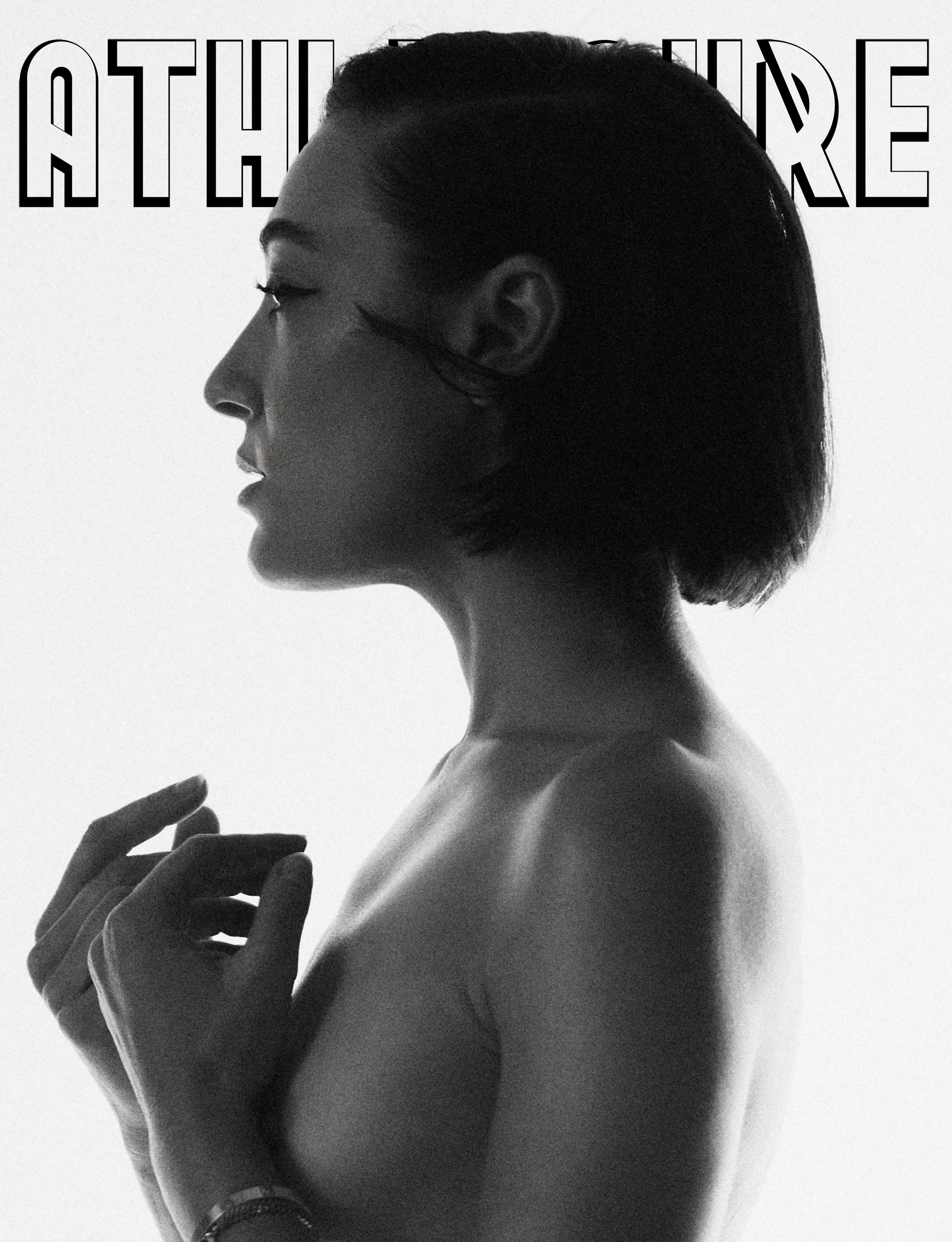We're excited that this month's issue is covered by DJ/Producer, songwriter, and poet, Mia Moretti. She sits at the intersectionality of music, nightlife, art, design, and fashion. She began her career spinning vinyl in LA before moving here to NYC in the LES. She has amassed a curated record collection that serves as the driving force behind her production. We have spent many nights listening to her play at our favorite clubs and events. Her approach to what she plays is due to her discerning taste, and is a foundation in performing at exclusive events in the halls of the Louvre, residences in Las Vegas, and composing runway shows for fashion designers. As an It Artist, we're always interested in seeing where she will pop up next, and what sounds she'll spin and produce.
Her ability to sample iconic house sounds from the US, while embracing strong women who are known to have something to say from all over the world, can be found in her debut single, You & Me; reworking the infectious South African disco bop Sweet Juju by Letta Mbulu; and collaborating with Colombia’s legendary Totó La Momposina on her highly anticipated debut dance EP, TAMBOR. We wanted to know more about how she fell in love with DJing, how she approaches her work, creating her tracks, and more.
ATHLEISURE MAG: We last saw you at Bungalow 8 and have enjoyed seeing you at a number of editor and special events. When did you first fall in love with music?
MIA MORETTI: When I was a kid my dad would play the guitar at the dinner table every night – they became my two greatest joys in life, food and music. It must be my way to keep him with me always.
AM: When did you realize that you wanted to be a DJ and how did you get your start initially?
MM: I remember the exact moment. I was at a club in Los Angeles called AD and DJ AM was playing. He wasn't on the dance floor like I had always seen DJs before, he was up in a booth that looked like it was floating over the crowd. He was in complete control of the room. He looked like a composer orchestrating the perfect journey for everyone under him. I wanted to do that.
AM: How do you approach your set list when you're doing an event?
MM: I don’t prepare a set list for an event unless it’s something very specific like a fashion show that I am curating the music for. For most of the shows I do have an idea of what I think I might play, but when I arrive I try to let that go and use my feelings a bit more. I like to see who is there and try to understand what sort of mood they are in. I like to see if they are coming from work, or coming from another party, or if they look like they are ready to stay all night, or just passing through - all these things make my job so different every night. Like life, you can't go around planning it, most of the time you just have to be present in it. That’s when it gets fun.
AM: Do you have any routines that you do prior to playing a set to get in the right frame of mind?
MM: Mmm that's an interesting question I always think I want all my friends with me or a big group around, but the truth is I really just like a few moments of silence so I can pull myself together and do that thing you know “get in the zone” - for me that means I give myself a mental check in. "I'm good, I got this, let's go to work now." It's really important for me to shake whatever day is left over on me and go into the booth clean and clear headed.
AM: Do you have any routines that you do after playing your set to come down?
MM: I love to go out and hear other DJs. I can't go to bed because my ears are ringing, so I may as well go out and absorb some creativity while all the portals are open. Also, pizza.
“For most of the shows I do I have an idea of what I think I might play, but when I arrive I try to let that go and use my feelings a bit more. I like to see who is there and try to understand what sort of mood they are in... Like life, you can’t go around planning it, most of the time you just have to be present in it. That’s when it gets fun.”
AM: Who are your musical inspirations?
MM: Strong females with strong voices. Artists with words they aren't afraid to use. All the women I sample, women that sing and pass down the traditional songs of their communities. Women that share those with us. Totó La Momposina, Petrona Martinez, Letta Mbulu, Crystal Waters. Those are the artists I sampled in the first 4 songs I produced. There are also many female voices in house music that were never credited, I am working on locating some of these lost voices, to make sure they get their credit, if it’s 30 years late.
AM: Where do you get inspiration to create your music as a DJ, producer, and songwriter?
MM: I've been a DJ for 20 years (!!!) I get all my inspiration in music. From collecting records, going to shows, traveling, meeting new people in every city I go, digging, trading, befriending local DJs, it's all there - the songs are already there, my job is 99% to find the right ones - the rest, anyone could do.
AM: We've been enjoying SWEET JUJU. We love the vibes of this song. Can you tell us about it and the vocal samples that were used?
MM: For my second release SWEET JUJU, I wanted to take it back to the origins of house: disco. In South Africa in the mid-80s musicians like Letta Mbulu were putting their own swing on the genre that had swept the globe. Mbulu’s music is funky, jazzy and brings everyone together. As a DJ, I have played Mbulu's record in many sets and always saw the crowd light up, so when I began this producing chapter of my career, I knew Sweet Juju was gonna be something I sampled. I hope this new single is as much an anthem of rhythm, love, joy, and "gettin' your man!" as it was in 1983.
AM: In addition to being a DJ, you're also a poet. Why do you want to share your creativity in this way and can you tell us about your collection of poems, Low Touch Economy?
MM: During the pandemic I found it very difficult to DJ at home. It was probably something I was going through personally, but djing to no audience felt soulless, not feeling and bouncing off of energy in the room made it nearly impossible for me to be creative and have fun with records. I stopped djing entirely for almost a year. I still craved connection to people, so I started writing poetry and sharing it online. I decided to gather all the little notes and pieces of scrap paper that I had random poems on from over the years and compile them into a book. I was listening to a business podcast that must have just shuffled into my rotation and the person speaking used the term
“Low Touch Economy” to describe the future of businesses. At this point, it being mid lockdown, I was pretty fragile like most of us, and I just sat there with that thought in my head horrified. I knew that would be the title of my poetry book because I wanted my poems to be that touch we all need. I ended up writing four volumes of poetry in the end. All four volumes of Low Touch Economy were letter pressed on 100% cotton paper and made here in Los Angeles.
AM: How would you describe your personal style?
MM: I don't take fashion very seriously even though it might seem that way. I don't overthink it, if it feels good when you put it on - go for it. That’s all that matters.
“[As to musical inspirations] Strong females with strong voices. Artists with words they aren’t afraid to use. All the women I sample, women that sing and pass down the traditional songs of their communities. Women that share those with us... There are also many female voices in house music that were never credited, I am working on locating some of these lost voices, to make sure they get their credit, if it’s 30 years late.”
AM: As someone that travels all over the globe, how do you find ways to make your environment feel like you're at home?
MM: Oh that isn't hard, every corner of the world has a bottle of wine. That’s just about all I need to feel at home.
AM: When you're not traveling or working on a project, how do you take time for yourself?
MM: Whenever I get home from a trip I go to the Korean Spa. I steam, sauna and cold plunge - I also love the himalayan sea salt room, it has the same relaxation properties as spending a day at the beach. The jade floor is also so nice. I'm pretty good at pampering myself, I have no qualms about going for a massage two or three days in a row.
AM: In terms of working out, meditation, etc how do you stay in shape?
MM: I have no self discipline and will only work out if I go to a personal trainer, so I go to my trainer Armando in Glendale. He stretches me out and massages me for the first half of the session, which is the only way he can get me to do anything. In general I prefer to exercise in my day to day life, I walk whenever possible, take the stairs instead of the elevator, carry shit all the time and just try to move around a bit. Dancing counts, too.
AM: If we were at your home for a dinner party, what music would you have to set the mood and what would you serve as we know you enjoy cooking?
MM: I have a beautiful Thorens turntable that I rarely get to enjoy, mostly because I'm too lazy or tired to get up and flip a record when I'm home alone, so when I have guests over, I always put something from my vinyl collection on, or I'll have a guest choose. I did quite a dig when I was recording in Colombia, so there is a beautiful Bullerengue selection that sets a perfect tone for a dinner party. I love to go to the Armenian market in Valley Village and get homemade lavash and spreads, if I'm having friends over it's usually 2 or 3, then 5 or 6, then 10 to 12, so I'll roast a big pan of vegetables, maybe grill some fish and put out loads of bowls with all the side dishes.
AM: What do you want your legacy to be?
MM: I want someone to dance to my music, feel the earth under their feet and remember where they came from.
IG @miamoretti
PHOTO CREDITS | Andrew Arthur
Read the SEP ISSUE #43 of Athleisure Mag and see IN THE PRESENT | Mia Moretti in mag.

